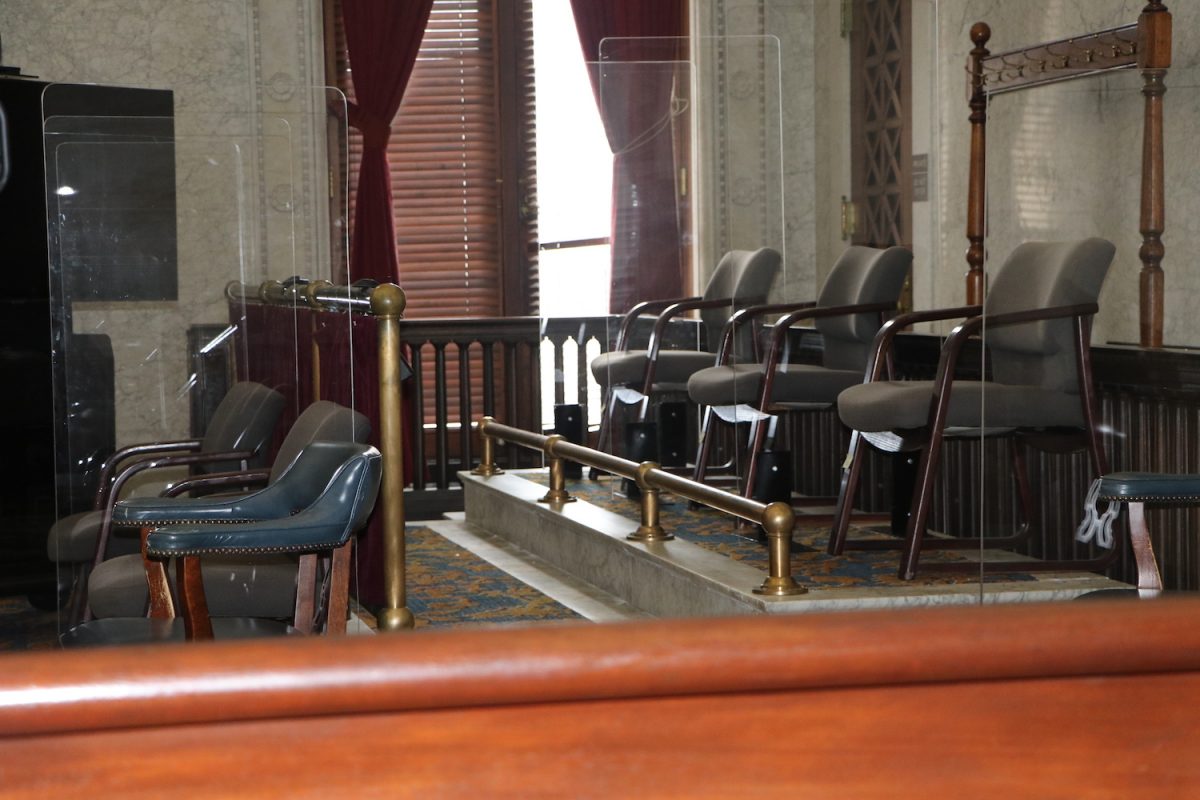
Thank you for reading Baltimore Witness.
Consider making a donation to help us continue our mission.
By
Andrew Michaels
, Alyssia Davis [former] - May 11, 2023
Court
|
Daily Stories
|
Homicides
|
Shooting
|
Suspects
|
Victims
|
There are two types of evidence: factual and circumstantial. And in the case of defendant Major Kinchen, a Baltimore City prosecutor said before a jury, it is the circumstantial evidence that links the 33-year-old Baltimore resident to the murder of his girlfriend, Breonna Rogers.
On May 10, the jury found Kinchen guilty of second-degree murder and two weapons charges for the 30-year-old woman’s death and his sentencing was scheduled for June 30. Baltimore City Circuit Court Judge Kendra Ausby presided over the trial.
“Circumstantial evidence is not a bad thing,” the prosecutor said. “Witnesses’ memories might face, but circumstances won’t.”
For instance, Baltimore Police searched the defendant’s home on Jan. 20, 2021, one day after the killing allegedly occurred. Inside, she said, police found the murder weapon with Kinchen’s DNA in addition to jeans that were covered in both his and Rogers’ blood.
Kinchen’s behavior also raised questions when he was taken to the police station. Rather than ask if his girlfriend was OK, he kept asking, “Did you find her?” The prosecutor explained that Kinchen knew where Rogers’ body was because he was the person who shot her in the neck and dumped her body in Druid Hill Park.
His lies to police continued when evidence refuted Kinchen’s statement about when he last saw Rogers and that he was apparently looking for her, despite his phone being turned off and phone records indicating that he did not call his girlfriend to attempt to find her. The defendant also lied to Rogers’ family, the prosecutor said, telling them that she gave him her car.
“Really? She gave him the car with blood and a bullet hole in it?” she asked the jurors. “He lied to her family to try and cover his tracks the same way he lied to the detectives.”
Defense attorney Matthew Connell questioned both the prosecution’s cell phone and ballistics evidence, beginning with an FBI agent’s testimony that Kinchen’s phone could not be placed in Druid Hill Park where Rogers’ body was found.
“The idea of the phone being turned off is a theory, not a fact,” he said.
Furthermore, a firearm expert’s testimony was unable to confirm that the alleged murder weapon police found matched the bullet that was later recovered.
The prosecution also alluded that the defendant killed the victim because she assaulted him. However, Connell argued, not one witness testified that that was the case.
“We should deal in facts, not theory,” Connell concluded.
